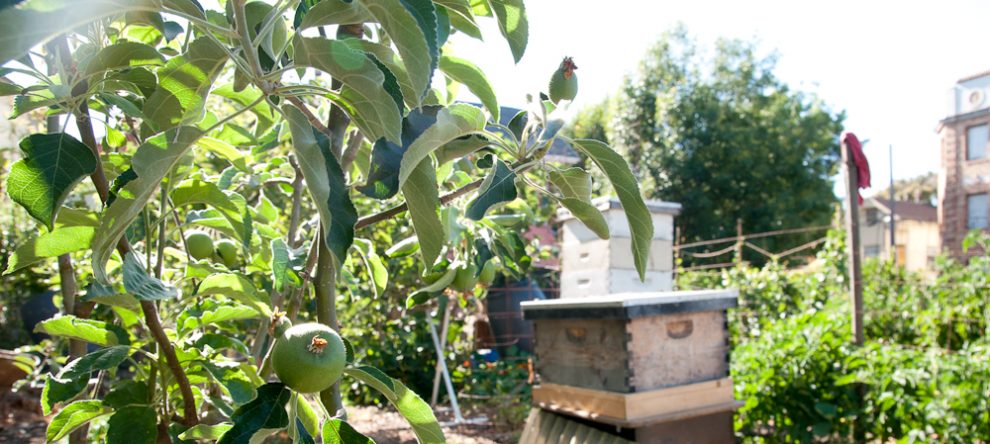They started to explode on the shrub/tree I planted years ago. My first good crop of Wonderful Pomegranates. I had thought: they’ll never ripen here.

I thought they needed heat. Dry heat. Which we don’t have much of here in Oakland. But ripen they did.
We ate them raw. Frannie is allowed to eat them outside only because they are so messy and juicy. They are one of her favorite snacks, partially because of the work they involve, digging the seeds out, pulling off the pith and membranes; partially because (I think) of that incredible crunch, the explosion of fresh juice in the mouth.

Until now, there’s nothing left.

Besides snacking on them, I sometimes threw them into salads, like massaged kale salad, to add a bright sweetness. Some people recommend cooking with poms, like Ken Albala. I had never heard of Ken before, but I found myself in Idaho of all places, at the Bookpeople in Moscow, Idaho, and the owner highly highly recommended his book, The Lost Art of Real Cooking, and its companion, The Lost Arts of Hearth and Home. The books are instruction manuals for how to make all sorts of crazy stuff like a koji rice mold and rag rugs; and stuff that you wished you made but haven’t yet like corn tortillas (nixtamalizing your own corn, of course), olla podrida (look it up!), and marmalade.
I’ve never met Ken or his co-author, Rosanna Nafziger, but they are totally my people! Ken lives in Stockton where he teaches food history at the University of the Pacific. I think he must have some pomegranates growing in his garden because in the Hearth and Home book, there’s a recipe for pomegranate molasses that sounds out of this world. Basically you just cook the pomegranate seeds with some sugar and vanilla for a million hours on low. The result is that gummy blood-like sludge that tastes like heaven.
Sadly, Frannie and I ate all the poms fresh. Next year I’m hoping the pomegranate tree will have biggered itself and I’ll have enough to try the recipe…But if you find yourself with an overabundance, give it a shot. Any other good pom recipes out there?

